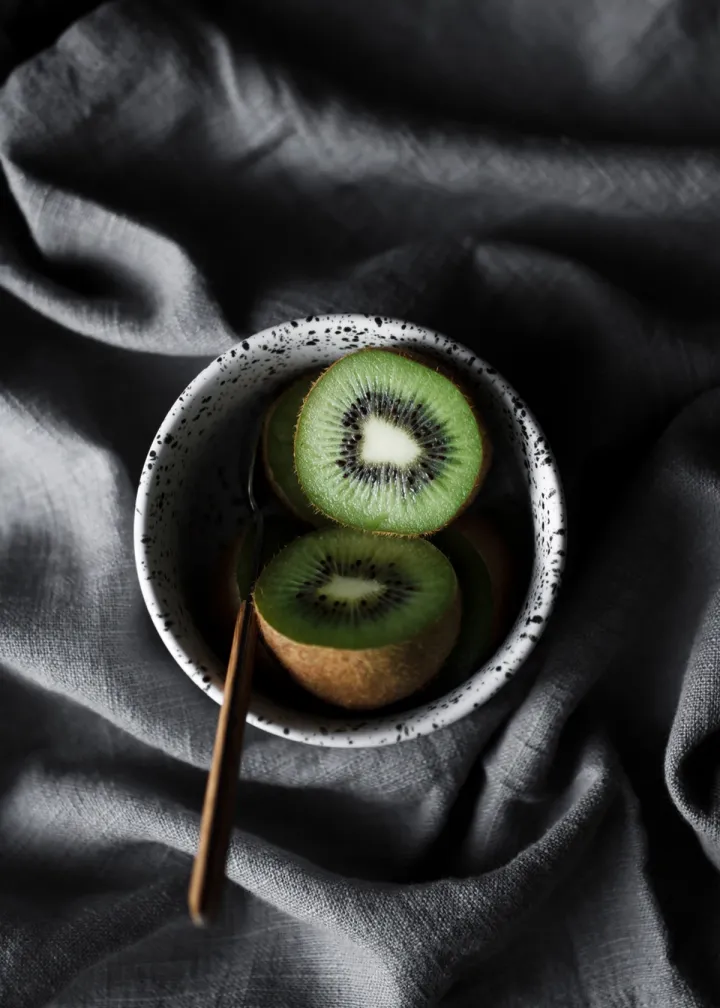
6 Dietitian-Approved Foods to Eat Before Bed to Improve Your Sleep
What you eat late at night can have a big impact on your sleep quality.
Most people are familiar with how food can impact our energy levels, whether it's feeling more awake after a cup of coffee in the morning, or feeling drowsy after a particularly big Christmas lunch. Our diet is closely linked with our sleep quality, and with more knowledge around why sleep is so important for us, it can help to understand what foods could help improve sleep.
First, why is sleep important? Overnight, our body requires sleep for certain physiological and psychological functions to occur. This is an important time for our body to recover, with poor sleep negatively affecting mood, memory, cognition, immunity and inflammation.
Poor sleep has also been linked with increased intake of high GI carbohydrate foods (think the less healthy carbohydrate foods such as desserts), and an increased appetite due to the fall of leptin levels, our appetite-regulating hormone. Along with this, sleepiness during the day can often drive increased food intake in the hope of an energy pick-me-up, and these factors can all result in excess energy intake which could then impact weight management.
In the same way that our sleep can be a driving factor in our food choices, what we do choose to eat right before bed could impact our sleep quality and latency (the time to fall asleep). If you are a night-time snacker, why not try one of these six foods that might help to improve sleep.
1. Bananas
Bananas contain tryptophan, a protein involved in our sleep. Tryptophan helps to produce serotonin and melatonin. Serotonin is a neurotransmitter that influences sleep and mood, while melatonin is a hormone the body naturally produces and is involved in our sleep-wake cycle, helping to regulate our body's circadian rhythm.
Bananas are a good source of carbohydrates too, but you may have heard that you shouldn't eat carbohydrates before bed? Luckily this one is also a bit of a myth! Carbs before bed can actually be helpful for our sleep so don't hesitate if you feel like having a banana after dinner for a sweet snack option!
2. Almonds
Almonds may also help sleep thanks to their melatonin content. They also contain magnesium which can anecdotally assist relaxing muscles and improving sleep. Try a handful of almonds before bed, or for a real winner add them to a banana smoothie for a healthy dessert option!
3. Rice
Studies have found that eating carbohydrate foods in the few hours before bed can improve sleep latency. On the other hand, high-sugar carbohydrate foods can have a negative impact on your sleep, so thinking about the type of carbohydrate foods we choose is key.
Avoid high-sugar desserts (except on occasions of course) and soft drinks, and instead focus on wholegrain carbohydrate foods, fruit or starchy vegetables with dinner to help improve sleep. Rice is a great option, but you could also choose potatoes, barley, quinoa or wholegrain pasta. Pairing carbs at dinner with tryptophan-rich protein foods is even more beneficial for sleep as this assists tryptophan in reaching the brain and helping to produce melatonin and serotonin.
4. Fatty fish
We know what you're thinking – bit of a weird snack to eat before bed! This one is for those that aren't dessert people or don't snack after dinner. A research study found that over a period of time, those who ate fatty fish (such as salmon, tuna, herring, and sardines) a few times a week reported better sleep quality and better daytime alertness than those who ate less or none.
This was contributed to the vitamin D and omega-3 content of fish, which has known impacts on brain health and function, as well as the vitamin B6 which encourages the production of melatonin. When you know you are having a late night at work or are busy and stressed, choose fatty fish as your protein choice with dinner to help your sleep and recovery.
5. Kiwifruit
In one study, participants who were given two kiwifruits one hour before bed reported better sleep quality than those who weren't. It is thought that this could be due to the antioxidant content of kiwi fruit and the serotonin content. While this is a small study and more research would be needed, there is also no harm in swapping out a less healthy dessert option for kiwifruit before bed!
6. Tart cherries
Tart cherries in particular have been researched in sleep studies due to their high melatonin content. Melatonin is a hormone involved in our sleep cycle, where its levels are highest in the night time which helps to regulate our circadian rhythm. The body naturally produces melatonin, but research suggests that melatonin might be useful in sleep disorders. Note that tart cherries and tart cherry juice are more beneficial than sweet varieties, as sweet cherries have much lower levels of melatonin. However, if difficult to source, a handful of berries after dinner could also do the trick!
Overall, it matters what you eat throughout the whole day. A low fibre, high saturated fat and sugar diet is linked with poorer sleep. There are so many factors that affect sleep too, like your sleep hygiene and stress levels, so don't rely on these foods as a magic fix for sleep issues. Consider them an additional cherry on top of a healthy diet and lifestyle, including stress management, that supports a good sleep routine!
Always seek the guidance of your doctor or other qualified health professional with any questions you may have regarding your health or a medical condition.
Health & Performance Collective is the brainchild of Sydney Dietitians Jessica Spendlove and Chloe McLeod. They use their 20 years of combined knowledge and skills as dietitians to work with motivated people to live and perform at their best.
Enjoyed This?
Discover more wellness content.










